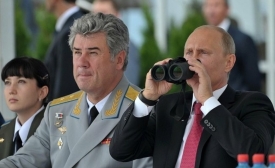soft power
President Tsai Ing-wen (蔡英文) took over as head of the Taipei-based General Association of Chinese Culture (GACC) on Thursday, outlining three missions for the organization including boosting Taiwan's cultural power and promoting cultural exchanges and cooperation with China.
Another area in which Iranian soft power is uncontested is in the construction of museums to promote its world view. In the aftermath of the Iran hostage crisis, Iranian authorities transformed the former US embassy into a museum to illustrate both supposed Iranian victories over America as well as grievances against the United States.
According to a survey of 2,000 consumers across China in late February of this year, Donald Trump has caused an adverse effect on Chinese sentiment towards investing in the United States. The data found that 41.2% of Chinese consumers have a more negative view of the US following Trump’s first month as President. 50.7% of consumers held a neutral position and 8.1% now viewed the US more positively.
The Ministry of External Affairs is going to use documentaries to showcase India in the international arena as a part of its effort to strengthen India’s “soft power”. The External Publicity & Public Diplomacy (XPD) Division of Ministry of External Affairs has invited proposals from filmmakers to make documentary on “India—a science and technology super power” and three separate documentaries that will cover the architectural, cultural and natural heritage of India.
All in all, Salman’s Asian official visit-cum-holiday is likely to reverberate far beyond the billions of dollars in economic and commercial agreements he signs. The visit also solidified cooperation between Asian nations and Saudi Arabia in the fight against IS.

Conan O'Brien, Russia and fake news are featured in this week's roundup

Has Putin's use of hard power created a soft power appeal?







